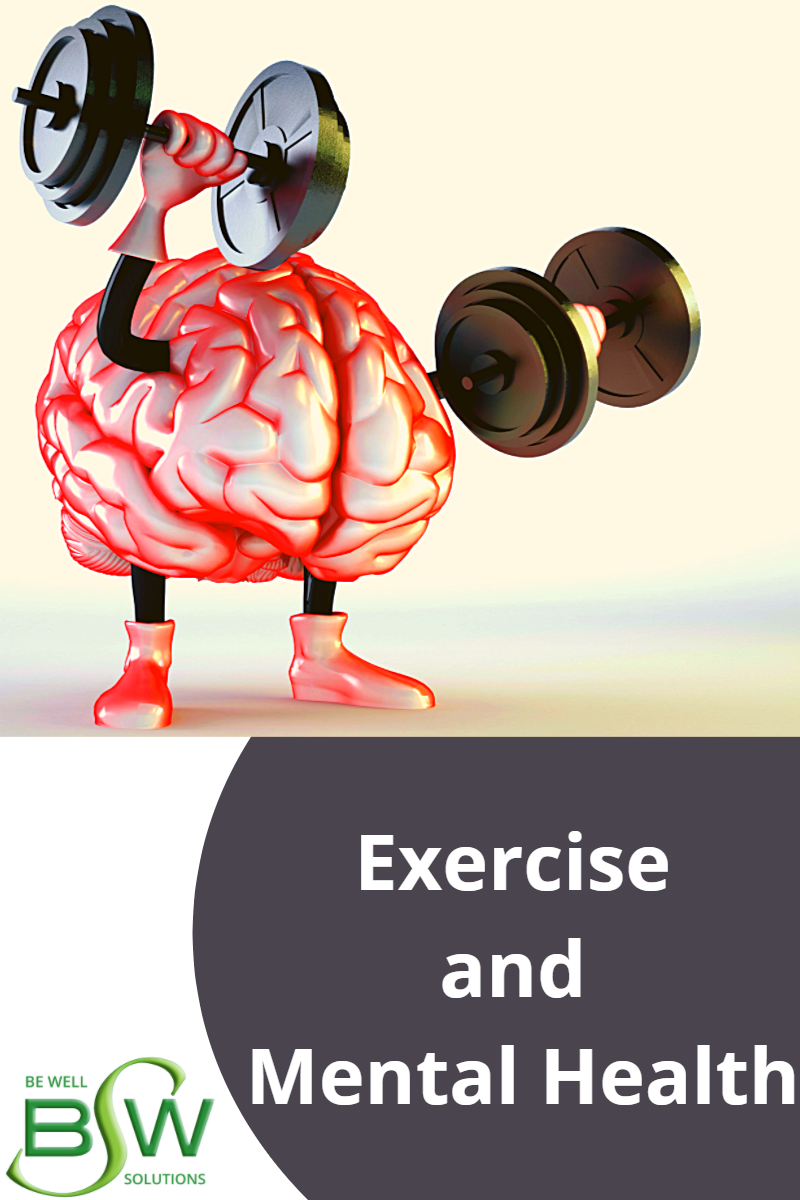
Mental health is an important factor in overall wellness. Many Americans face mental health challenges daily, which magnifies the need for understanding and managing it. Exercise is proven to have many health benefits, both physically and mentally. Let’s take a closer look at how exercise can aid mental health.
The Benefits
The latest exercise guidelines published by the Department of Health and Human Services noted how physical activity has “brain health benefits, including possible improved cognitive function, reduced anxiety and depression risk, and improved sleep and quality of life.” Exercise increases the body’s production of serotonin, dopamine, and norepinephrine. These neurotransmitters help the body stabilize mood, feel more happy and motivated, and stay more focused (National Alliance on Mental Illness). Physical activity also releases endorphins, often referred to as the “feel-good” hormone, and are a natural pain killer for the body. Exercise is beneficial for managing mental illness, stress, and overall cognitive health.
Start Small
Beginning an exercise routine can sound like a daunting task, especially when battling stressful situations and mental challenges. The key is to start small and start with something that you enjoy. You don’t need to start with an hour-long exercise session. Instead, choose something more manageable, like a five-to-ten-minute walk around the block. There are so many ways to be active. Even if exercise isn’t something you put on your “favorites” list, think about what you find enjoyable or interesting. Do you like the social atmosphere of an exercise class? Do you enjoy taking a small hike in nature and observing the sights and sounds around you? Do you prefer listening to a podcast or watching your favorite TV show while pedaling on an exercise bike? Start small and remind yourself that even five minutes of movement is better and more beneficial than none.
Staying Motivated
Consistency with exercise is a necessary part of long-term mental health management. Finding the motivation to stay consistent can be a tall task. You know the benefits of exercise, and you want to exercise, but how do you get moving on those tough days? Remind yourself how you feel when you finish a workout. Think about how it changes your mood and energy. Reflect on your “why” and think about reasons exercise is important to you. Find a buddy to exercise with or someone that can help hold you accountable. Consider the 5 Minute Rule. On days you struggle with motivation, commit to exercising for five minutes. If after five minutes you still don’t feel like exercising, then give your body a break and try again tomorrow. Chances are, after getting started and exercising for five minutes, you’ll be ready to keep going.
Beginning and sticking with an exercise routine can be difficult but can also be a wonderful tool in managing mental health.
Always consult with your physician before starting a new exercise program.
Written by BWS Lead Health Coach- Kelly Schlather, BS, ASCM – CEP
Continue reading May 2022 Newsletter: Nutrition and Mental Health
